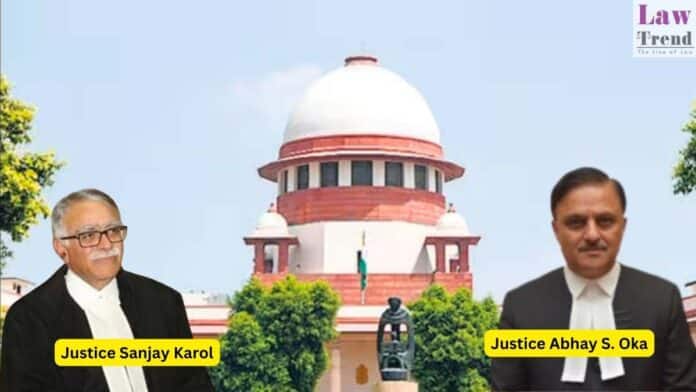In a significant judgment, the Supreme Court has ruled that a plaintiff seeking specific performance of an agreement to sell is not required to seek cancellation of a subsequent sale deed executed by the seller, even if the plaintiff was aware of it before filing the suit. The ruling came in Civil Appeal No. 6782
To Read More Please Subscribe to VIP Membership for Unlimited Access to All the Articles, Download Available Copies of Judgments/Order, Acess to Central/State Bare Acts, Advertisement Free Content, Access to More than 4000 Legal Drafts( Readymade Editable Formats of Suits, Petitions, Writs, Legal Notices, Divorce Petitions, 138 Notices, Bail Applications etc.) in Hindi and English.




